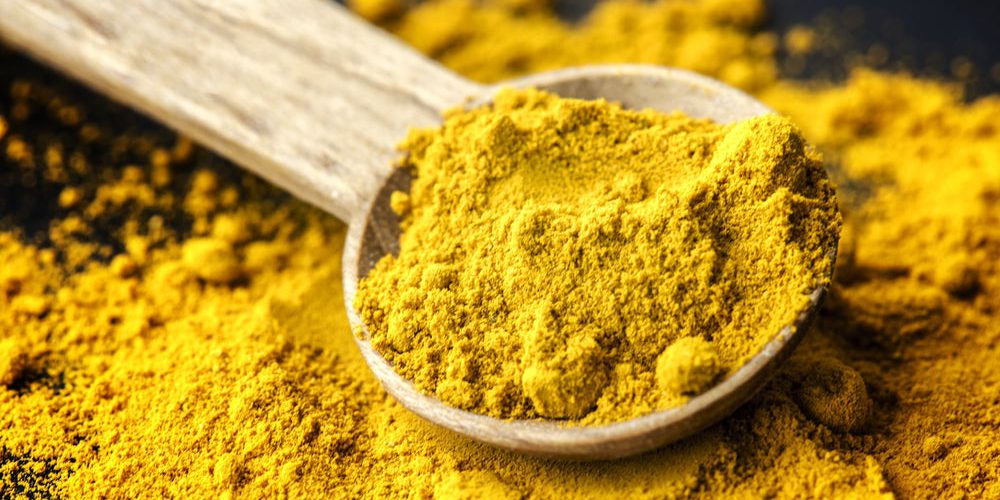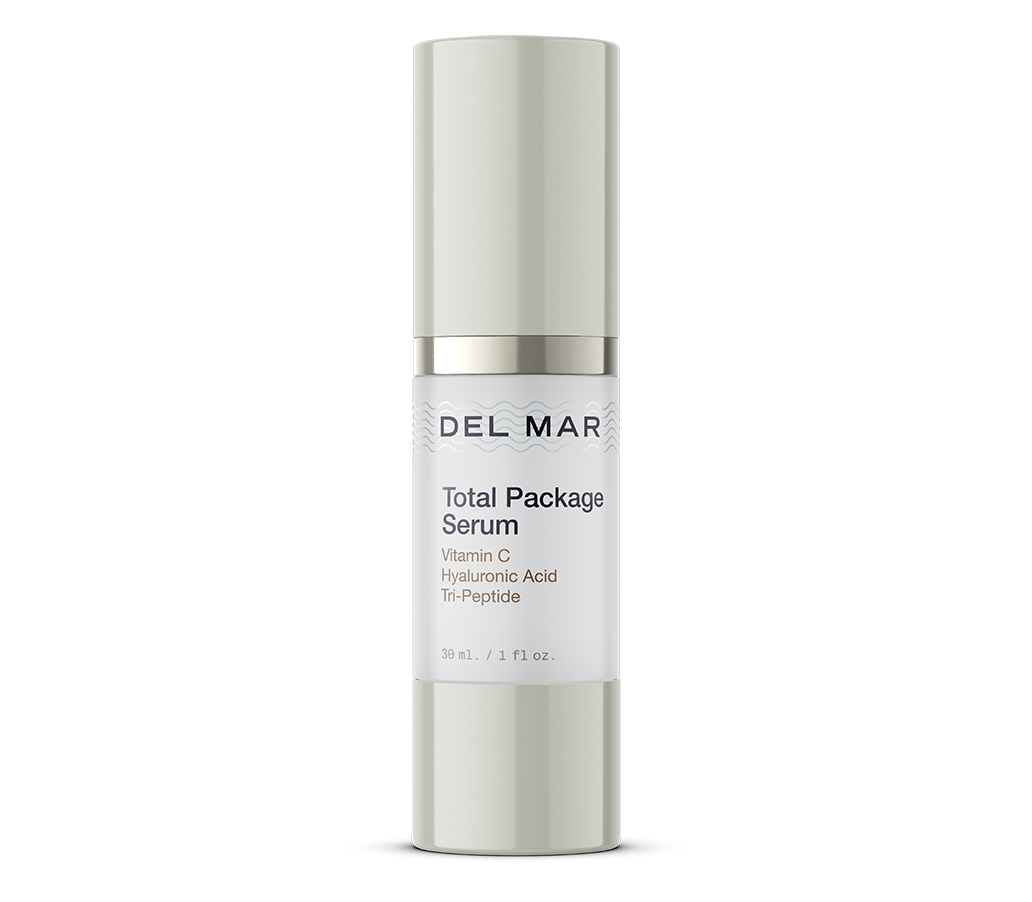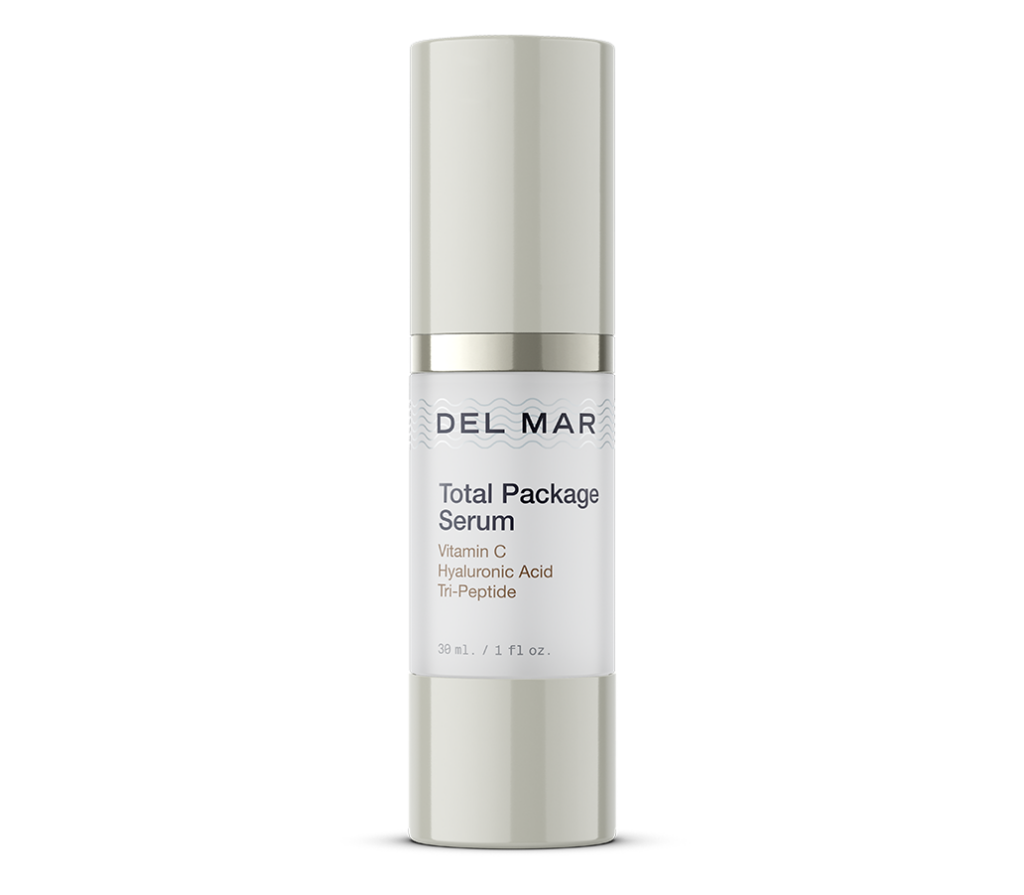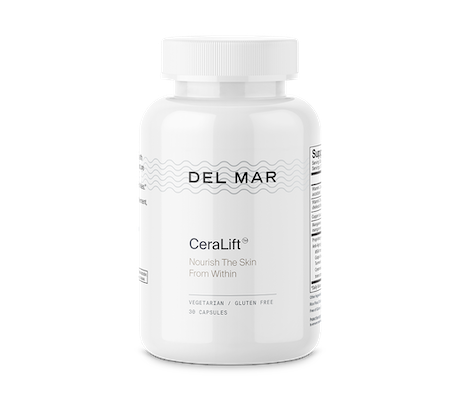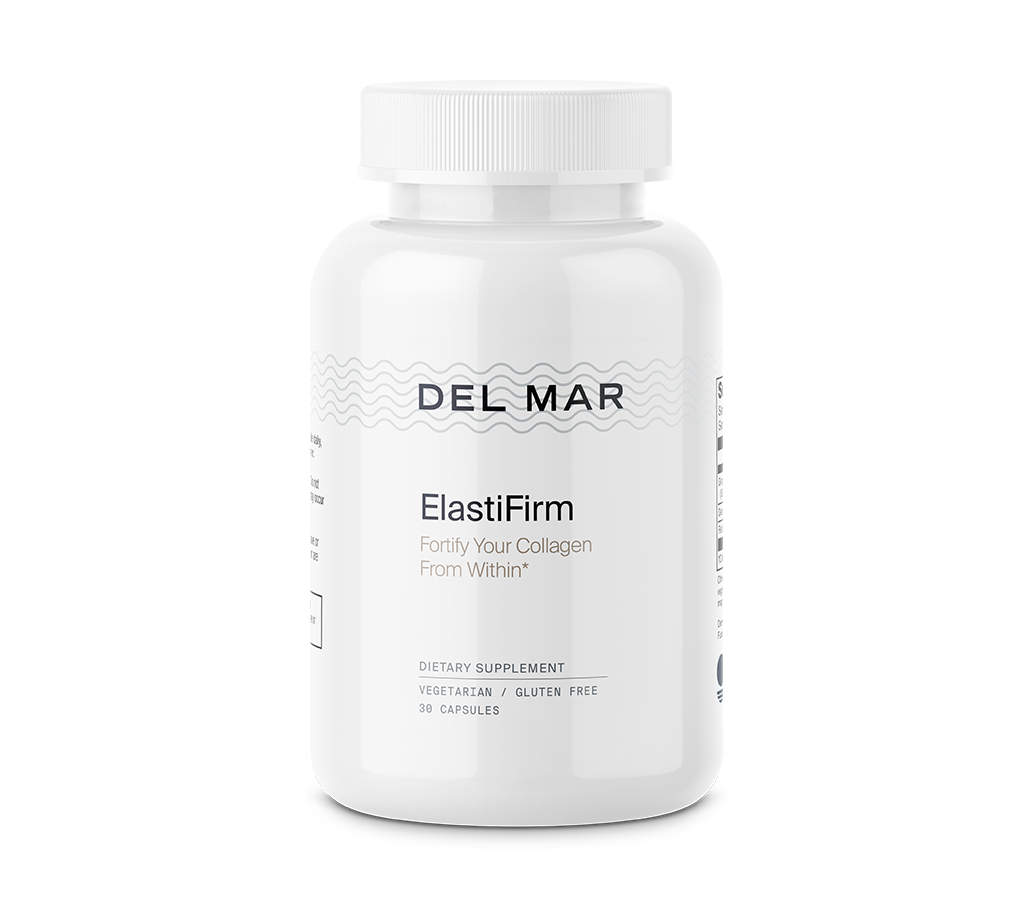Do you hate taking pain medication? The most common category of drugs for inflammatory pain, NSAIDs, can lead to serious side effects, especially when taken for extended periods of time.
Researchers have found that curcumin supplements may be as effective as NSAIDs for relieving certain types of pain with a much better safety profile. (1)
Curcumin is a 100% natural compound taken from the healthful—and delicious—bright yellow spice turmeric. Curcumin has been found to be a potent anti-inflammatory agent, which is likely why it’s so effective at helping to reduce certain types of pain.
What’s more, reducing pain and inflammation aren’t the only benefits of curcumin. Research suggests that it may improve mood, reduce stress, protect against cardiovascular disease, enhance memory, and much more.
Read on to learn more about this buzz-worthy supplement that’s taking the world of natural medicine by storm.
What is Curcumin?
Curcumin is the primary compound in turmeric that’s credited with its health benefits. Turmeric is a spice native to Southeast Asia that’s widely known as the spice that gives curry its yellow-orange hue.
Over the last few decades, researchers have discovered that turmeric may help those suffering from a wide variety of diseases, and even improve the mental and physical wellbeing of those who are currently healthy.
As it’s the main bioactive compound in turmeric, consuming concentrated curcumin may allow us to experience a greater benefit than we would from consuming turmeric itself. This is true for two reasons: (2)
- Turmeric is only about 5-6.6% curcumin, so you would have to consume a lot of turmeric to get the same amount of curcumin.
- The curcumin in high-quality supplements is better absorbed and used by the body than that found in turmeric.
By understanding what curcumin can do for you and what products are the most effective, you can begin using this powerful plant medicine to support optimal mental and physical health.
The History of Turmeric and Curcumin

Many of the most powerful plant compounds known today have a long history of use in traditional medicine prior to their expansion to the West. Turmeric is no exception, as the spice has played an important role in Ayurveda, the holistic system of medicine in India, for nearly 4,000 years. (2)
Curcumin was first extracted from turmeric in the 1800s, although its biological characteristics were not studied until the mid-1900s. It took two more decades, still, for scientists to identify the anti-inflammatory and antioxidant potential of curcumin.
Since the 1970s, thousands of studies have been published examining the effect that curcumin and turmeric have on human health. While this natural medicine took some time to catch on, it seems like now everywhere you turn there’s a new curcumin or turmeric product.
How Are Curcumin Supplements Made?

The first step in making a curcumin supplement is extracting the curcumin from the turmeric root. From there, the curcumin will either be used on its own or in combination with other compounds and formulas to enhance its bioavailability.
Because curcumin on its own has very low bioavailability (most of it passes right through you), many scientists and companies have discovered and patented ways to enhance how much of it your body can use.
There are two main ways to enhance curcumin’s bioavailability:
- Add Piperine: Piperine is a bioactive substance found in black pepper that, when taken at the same time as curcumin, may boost its absorption and thus efficacy by 2000%.
- Combine with Lipids: Curcumin is a fat-soluble compound, and thus paring it with certain lipids (fats) can enhance how much curcumin your body can use. Some supplements will simply include fats to slightly boost absorption, and others use patented formulas proven in studies to further enhance bioavailability.
By carefully reading the label and doing your research before you purchase a supplement, you can learn more about the supplement and whether it’s formulated to enhance bioavailability.
What Does Curcumin Do? The Scientifically Supported Benefits of Curcumin
Preliminary and human studies suggest that curcumin may help those suffering from a variety of conditions, and even those who are healthy. Read on to learn which conditions may be helped by using curcumin.

Arthritis
Both rheumatoid arthritis (RA) and osteoarthritis (OA) are diseases associated with acute and chronic inflammation. Presently there are no drugs that can cure these conditions, and few that offer robust relief. Of those that help relieve the pain, they tend to come with a wide array of side effects.
Because these conditions are both incredibly painful and widespread, individuals and researchers alike have turned to herbs and other natural plant compounds in the hopes of finding relief. (1)
Multiple human clinical studies have examined the effects of curcumin on arthritis. In one study of 40 OA patients, six weeks of 500 mg/day curcumin with 15 mg/day piperine was found to improve pain symptoms and physical function to a greater degree than placebo. (3)
Another study with 367 OA patients set out to compare the pain relief potential of curcumin to NSAIDs (nonsteroidal anti-inflammatory drugs). Following 4 weeks of treatment with either curcumin or ibuprofen, researchers concluded that both were effective at relieving pain, and that there was no significant difference in efficacy. As there were fewer side effects observed in the curcumin group, it was concluded that OA patients may be able to use curcumin as a safer replacement for NSAIDs. (4)
General Pain Relief

According to research, it’s not just arthritis sufferers who may benefit from the analgesic effects of curcumin. Similar benefits have been found in those experiencing acute and post-operative pain.
In a pilot study examining the pain-relieving effects of Meriva, a proprietary formulation of curcumin and lecithin, researchers found that 2 g/day of Meriva reduced acute pain to a similar degree as the standard dose of acetaminophen. (5)
The other human study that examined the analgesic effects of curcumin was on patients following laparoscopic cholecystectomy (LC), or gallbladder removal. Following this procedure, patients often report pain and fatigue. 50 LC patients were randomized into either a placebo group or a curcumin group following surgery, with both groups having access to rescue painkillers. Researchers found that those in the turmeric group experienced less pain at weeks 1 and 2, when compared with the control group, with both groups pain free at week 3. Those in the turmeric group also used fewer painkillers than those in the placebo group. (6)
While more studies are needed to determine who all can benefit from the pain-relieving properties of curcumin, the early research supports its analgesic effects.
Metabolic Syndrome, Cardiovascular Disease, and Type 2 Diabetes
Metabolic syndrome is a condition marked by systemic inflammation, obesity, poor blood glucose control, abnormal triglycerides, high blood pressure, and cholesterol abnormalities that increase one’s risk of developing type 2 diabetes and cardiovascular disease.
Because curcumin has been found to reduce inflammation, researchers have set out to discover whether it may help those with metabolic syndrome and its related chronic diseases.
Studies on patients with metabolic syndrome have found curcumin to be more effective than a placebo at improving multiple parameters connected with metabolic syndrome, including cholesterol, triglycerides, insulin sensitivity, blood pressure, oxidative stress, and inflammation, all while possibly reducing weight. (1,7)
These studies indicate that curcumin may help those suffering from metabolic syndrome, potentially reducing their risk of developing chronic diseases such as type 2 diabetes and heart disease.
Irritable Bowel Disease

Irritable bowel disease (IBD) is an umbrella term used to describe any condition characterized by chronic inflammation in the digestive tract. Two of the most common forms of IBD are Crohn’s disease and ulcerative colitis (UC).
Multiple studies have found curcumin to be a powerful anti-inflammatory agent, and as such, it follows that it may help provide relief for inflammatory diseases, including IBD.
In one study, researchers discovered that six months of 2 g/day curcumin split into two doses led to a reduction in relapses in UC patients that was statistically significant when compared to the control group. Six months after the termination of curcumin treatment, there was no significant difference, suggesting that it may be best to take curcumin regularly to see lasting results. (8)
Depression
Small-scale human studies have found evidence that curcumin, taken regularly for months at a time, may help to reduce depression symptoms. Some of these studies have found significant benefits for those in the curcumin group when compared to the placebo group, while others have found a trend that did not quite reach significance. (9,10)
In one of the studies, the difference between the curcumin and placebo groups took more than four weeks to reach significance, suggesting that it may be important to take curcumin for a long period of time for benefits to appear. (9)
Anxiety
Evidence from a few small human trials suggest that curcumin may help to relieve anxiety for some people. (9,11,12)
In one study, 30 obese participants were randomized into either 1 g/day curcumin or placebo for 30 days. For the following two weeks, the subjects didn’t take either, and then were given the other treatment for the following 30 days. Researchers found significantly reduced Beck Anxiety Inventory (BAI) scores when comparing the curcumin period with the placebo period. (11)
These studies have been limited by small sample sizes, and few studies have been done to exclusively research the anxiolytic properties of curcumin in humans. More studies are needed to draw any definitive results.
Healthy Humans: Mood Enhancement, Fatigue Reduction, Memory Improvement, and Other Benefits

Limited research has been conducted to determine what effects curcumin supplementation has on healthy people. In these studies, benefits such as reduced general fatigue, improved working memory, and enhanced calmness and contentedness have been demonstrated. (1)
When examining the markers of certain chronic diseases, researchers observed reductions in amyloid beta, a biomarker associated with the progression of Alzheimer’s disease, as well as decreased levels of oxidative stress and inflammation, and lowered LDL and total cholesterol levels. (13)
These studies suggest that healthy people too may experience noticeable health, mood, and mental benefits with regular curcumin supplementation.
How Do Curcumin Supplements Work?
There are two primary mechanisms through which curcumin is thought to benefit our health and wellbeing: protecting against oxidative damage and reducing inflammation.
Curcumin Protects the Body from Oxidative Damage
Every day your body is under attack from unstable molecules known as free radicals. Free radicals are a natural consequence of your body’s metabolism, but other sources can create excess free radical formation and the resulting damage, termed oxidative damage.
Oxidative damage is involved in aging, with higher levels of oxidative stress linked to accelerated aging and increased occurrence of age-related diseases. Pollution, stress, cigarettes, a poor diet, a sedentary lifestyle, and many other factors can increase the quantity of free radicals in the body.
Fortunately, the natural world has provided us with the tools that we need to neutralize this damage, protecting our cells, health, and overall quality of life. These tools that combat free-radical-induced oxidative damage are known as antioxidants.
Antioxidants are molecules found in high concentrations in certain plants and fungi, with some antioxidants even produced within our own bodies. Researchers have found curcumin to improve markers of oxidative stress through a variety of pathways, including boosting the activity of certain naturally occurring antioxidants in the human body and directly scavenging free radicals. (1)
Curcumin Combats Chronic Inflammation
Chronic inflammation is thought to be involved in the pathogenesis of many of the common chronic diseases of our time, including cardiovascular disease, type 2 diabetes, certain cancers, metabolic syndrome, depression, autoimmune diseases, and neurodegenerative disorders like Alzheimer’s disease. (1)
While inflammation itself is not always a bad thing, as it’s important for healing wounds and fighting illness, chronically high levels of inflammation throughout the body cause damage.
Typically, you’ll experience symptoms of systemic inflammation before any diseases occur. These can include:
- Brain fog or trouble thinking
- Fatigue
- Difficulty losing or gaining weight
- Anxiety, depression, or other mood disorders
- Aches and pains
- Trouble sleeping
Curcumin has demonstrated anti-inflammatory properties. Specifically, curcumin appears to downregulate NF-κB, a transcription factor involved in the inflammatory pathogenesis of chronic diseases. It’s through increasing NF-κB synthesis and activity that environmental pollutants, pathogens, cigarette smoke, and more are believed to instigate chronic inflammation and the resultant cascade of bodily damage.
How Much Curcumin Should You Take?

The amount of curcumin that you should take depends on the supplement that you use, the reason that you use it, and your personal biology and experience.
While you will want to consider all these factors when choosing your dosage, the single largest factor that determines how much you should take is what supplement you’re using. Different supplements have varying bioavailabilities, meaning that you will have to take more of some supplements to get the same benefits that you would see with much less of others. (13)
Because of this, it’s helpful to choose a trusted brand that’s conducted testing to determine how bioavailable their curcumin formula is. Two good examples are Longvida-optimized curcumin and Meriva curcumin.
With Longvida-optimized curcumin, you only need to take it once per day thanks to their patented technology that allows 24-hour circulation following each dose. The dose that they recommend based on 19 published clinical studies is 400 mg/day. (14)
Meriva curcumin also has tens of studies that help you know how much you should take. Most studies have used 400 to 1,200 mg/day divided into two doses with promising results. (15)
Because everyone’s biology differs, the right dose for one person can be slightly different than that for another. You should start out at the lowest dosage with any new supplement, and slowly increase until you notice the benefits that you’re looking for. With any curcumin supplement, stay at the same dosage for one week or more at a time before increasing, as some benefits may not reveal themselves right away.
Curcumin’s Side Effects
Turmeric and curcumin have a long-established good safety record. Very few adverse responses have been observed in human studies. The few that have been include: (1)
- Nausea
- Diarrhea
- Dizziness
- Rash
- Headache
- Yellow stool
Safety, Precautions, and Drug Interactions

Most of us can take curcumin without any problems, but that doesn’t mean that there aren’t certain people that should be careful. Women who are pregnant or breastfeeding, those with bleeding disorders, people with diabetes, and some others should be careful with how much curcumin they add and how it interferes with medications that they’re on. (16)
If you’re taking any medications, be sure to check with your doctor and do your research to confirm if there will be any interaction with curcumin.
Can’t You Just Get Curcumin from the Spice Turmeric?
You may be asking yourself, if curcumin comes from turmeric, can’t I just have some turmeric? While consuming this spice is undoubtedly good for you, it’s typically better to use a curcumin supplement. This is because:
- Turmeric is only 5-6.6% curcumin.
- The bioavailability of curcumin in turmeric is lower than in high-quality curcumin supplements.
- You cannot know how much curcumin your body is absorbing in turmeric, making it hard to find your optimal dose.
The great thing about curcumin supplements is that extensive research has been conducted on quality products. This gives you the comfort of an easy-to-measure and reliable dose that you can adjust until you find the benefits that you’re looking for.

Picking the Best Supplement: Know Your Ingredients
Not all supplements are created equally. This is true for every supplement, yet it’s especially so with curcumin supplements. Because this compound has very low bioavailability without the use of fats or piperine, different supplements will have wildly different efficacy.
What this means is that you can take 1,000 mg/day curcumin from two different supplements, but one supplement can be 185 times as effective as the other! (2)
High quality curcumin supplements are those that use patented curcumin formulas that have undergone rigorous testing to ensure efficacy, bioavailability, and safety. For this reason, we have compiled a list of some of the highest quality forms of curcumin on the market, as well as some products that use this type of curcumin.

Our top choices are:
- Longvida-Optimized Curcumin: This is a great option thanks to high bioavailability combined with a formula that allows you to only take it once daily. You can find Longvida curcumin in Vitalifi’s VitaCell and Nutrivene’s Longvida Curcumin.
- Meriva: While ½ the bioavailability of Longvida, Meriva is another great patented formula of curcumin with over 30 published studies. Doctor’s Best’s Curcumin Phytosome and Source Natural’s Turmeric both use Meriva.
- BCM-95: With a unique formula combining curcumin with essential oils, BCM-95 is a quality formulation with about ½ the bioavailability of Meriva. Life Extension’s Super Bio-Curcumin and Progressive Lab’s Curcumin both use BCM-95 curcumin.
When buying a new curcumin supplement, be sure to:
- Find a supplement with high curcumin bioavailability. This can be by using one of the patented curcumin formulas listed above, or another one that has research backing its bioavailability and efficacy.
- Read reviews to make sure that customers are satisfied with the product.
- Follow the dosage on the bottle or that used in human clinical trials for that product.
Remember, even though generic curcumin products may be cheaper, it’s best to think about the cost per effective dose. Because branded curcumin can be many times more effective than generic curcumin, we recommend choosing one of the above brands to get the best bang for your buck combined with the largest benefit for your health.
Final Thoughts
Curcumin is one of the most extensively researched natural compounds available, with many thousands of studies published over the last 30 years. The many health benefits elucidated by these studies have led to curcumin becoming one of the trendiest supplements on the market today.
With many quality brands of curcumin and a good safety profile, it may be time for you to give curcumin a try. Be sure to stick with it daily for weeks to months at a time, as certain benefits appear only with regular use, and see which benefits you notice. You may find that curcumin can help you live a happier, healthier life for years to come.
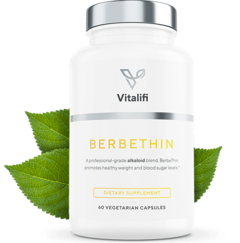
BerbeThin
The Fat-Melting AMPK Activator
This nutraceutical “resets” those age-related glitches in your metabolic machinery, kickstarting your natural fat loss engine.
